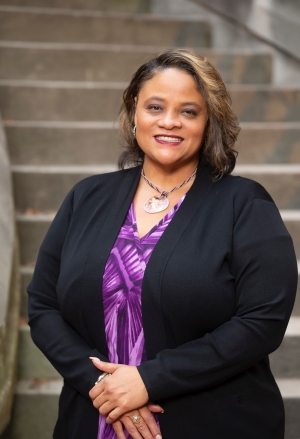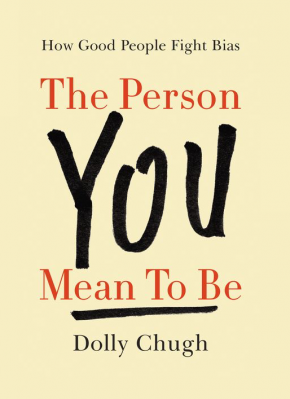Dear John Carroll Community,

We are in a historic moment.
As a nation, and as a community, we are reckoning with our history of systemic exclusion, marginalization and violence, and we are in a new moment of understanding how this history has influenced our present.
As we witness the protests sweeping the nation, and we hear more new voices emerging every day to denounce the injustice in our streets, it is heartening to realize that silence, complacency, and denial are no longer options before any of us. Systemic racism, as well as other institutional injustices, are now being given full voice and attention. Addressing these issues will require asking tough questions and wrestling with answers that may not be easy. But it is clear, now more than ever, that the time is upon us to work towards sustainable change.
As a part of our senior leadership team, I can attest that we are all committed to the necessary work – not just in passive study of these injustices, but in the active work of dismantling unjust structures and behaviors that have gone too long unexamined.
Like many predominantly white, religiously affiliated institutions, John Carroll University is a place where some people still feel they “belong” more readily than others. While we strive to be an institution where everyone can thrive and feel at home, it is clear from the experiences described by certain groups on this campus that we still often fall short of that goal. We do not – and none of our community should -- accept this reality, and we are committed to change it.
For the past several years, many leaders across campus have been working hard to make John Carrroll more inclusive, more just, and more welcoming of all people, and we have made progress. This summer marks a transition as we close out our work on the 2018-2020 Strategic Plan for Inclusive Excellence (SPIE) and begin a new phase of Inclusive Excellence goals and objectives for structural solutions to racial and other inequities we face as a community and as a nation. Please see the "Policies, Practices, and Strategic Initiatives" section, below, to read more about our planning and goals.
The sections below provide a snapshot of the many initiatives we are planning this year. While we all recognize the value of programmatic responses such as listening sessions and workshops, I must also emphasize that the work of long-term, systemic and structural change must be at the forefront of every area within the University. It will take every part of our community to hold each other responsible for the transformative changes that are necessary.
Lastly, we are also aware of the emotional, spiritual, and psychological weight of these matters for many members of our community. If you find yourself in need of support, resources are available here. Please reach out. Wherever you find yourselves in these discussions, whatever your feelings about them, please know that we are committed to being a place where our community’s questions, concerns, needs, fears and hopes will be heard.
It is my promise to you that we will continue doing all that we can to help our community live up to its own mission to be a welcoming place where all can thrive.
Sincerely,
Tiffany Galvin Green, Ph.D. Vice President for Diversity, Equity & Inclusion

All members of the full-time and part-time faculty, staff, students (including incoming members of the Class of 2024), and alumni were invited this summer to join President Michael Johnson and the senior leadership team in a community-wide book read of The Person You Mean to Be: How Good People Fight Bias, by Dr. Dolly Chugh.
Dr. Chugh is an award-winning psychologist and faculty member at the Stern School of Business at New York University who studies how and why most of us, however well-intended, are still prone to racial and gender bias. The book provides a practical guide for how, as individuals, we can move past personal barriers to become active builders for the systematic work of diversity, equity, and inclusion, including racial injustice.
This important University-wide initiative will help us all be better prepared to engage and build a more aware and inclusive community. Click here to view the reflection questions and activities for the Book Read.
Interested in holding a reading group this year for your department, division or student group using this book? We are available to help provide resources, materials, and facilitation as needed. Contact diversity@jcu.edu for more information.
- In response to many requests for resources to help our community understand and discuss issues of racial equity, we have produced the following:
- "How to Get Started in Racial Equity Work: Plant a Justice T.R.E.E.E." - a brief article describing our own ecological model of anti-racist education and growth.
- a Racial Equity Resource Guide and Selected Reading List.
- We have instituted a weekly mini-newsletter mailing, “R.I.S.E. Up,” to keep the JCU community informed with weekly tidbits of news, information, and opportunities to engage in the work of DEI here at JCU. (R.I.S.E. = Reinforcing Inclusion through Skill-building and Education.)
- We have established a social media presence for the DEI division on Twitter and Instagram. These complement the social media work already being done by CSDI on Twitter and Instagram.
- We are working to produce a “FAQ” document for faculty and staff to address questions and concerns that may be raised by current events. If you have a question you’d like to be considered for inclusion in the FAQ, please note it in our online suggestion box.
- We have collaborated with Alumni Affairs to produce some materials on racial equity for the June 2020 Onward Alumni newsletter.
- We have collaborated with the Working Parents and Guardians Employee Resource Group to disseminate resources for parents about talking with children about racial justice. These are also included in our Racial Equity Resource Guide.
- We are grateful for the leadership of our colleagues in Campus Ministry for gathering us in communal prayers for racial justice this summer and fall, and to our partners at the Ignatian Solidarity Network for continuing to provide opportunities for us to engage in prayer and reflection on racial justice.
- Responding to requests from faculty and staff, we are establishing a series of “affinity and accountability” group gatherings for faculty, staff, students and alumni to engage in discussion and self-education about racism and allyship with Black and POC communities. We are also hosting a series of affinity group gatherings for Black, Indigenous and People of Color (BIPOC) for discussion, support and encouragement at this time. Please email diversity@jcu.edu to receive information about how to register for these affinity spaces.
- Programs offering opportunities for dialogue and reflection have been convened across campus by departments such as the Center for Student Diversity and Inclusion, Campus Ministry, and the Department of Athletics.
- We will collaborate with the Office of University Mission and Identity to produce an Examen for Racial Justice during the fall semester. During this Examen, our community will engage in a reflective process, drawing upon our Ignatian spiritual heritage, to help us to identify individual and systemic attitudes, beliefs, and structures that perpetuate patterns of white privilege, racism, and anti-Blackness within JCU.
- We are holding one-on-one and department/division-level coaching and listening sessions to help start dialogues on racial justice in these areas. Email diversity@jcu.edu to request help planning a session for your area, or put a request in our online suggestion box.
- We are expanding our relationship and communication between the University DEI committee and the new Police Advisory Council (which started in January 2020) to provide regular support and awareness to the JCU Police department for any needed officer training, changes in policies and/or improvements in practices in light of the new national spotlight on policing.
- We are developing additional R.I.S.E. series webinars for faculty, staff, and students - including: inclusive teaching strategies and difficult conversations in the classroom and racial equity awareness.
- In June, we presented a webinar entitled "How to Contribute to the Work of Racial Equity" in the Alumni Continuing Education Series (A.C.E.S.) program.
- We are devising specific department/division-level racial equity-focused training and workshops for various departments across campus, including campus police and athletics to help increase awareness as well as knowledge of best practices for creating inclusive spaces on campus. Email diversity@jcu.edu to request help planning a session for your area.
- We are planning more book reading discussion groups in our R.I.S.E. series. Subscribe to the R.I.S.E. Up newsletter for more information.
- New this year, incoming first-year students will all be required to complete online diversity and inclusion training before the beginning of the fall term. Most student leaders have already completed this training in recent months. This requirement is in addition to other training modules that were already mandatory for incoming students, such as alcohol education and sexual assault prevention training.
- We are planning an immediate review of University policies relating to current DEI issues, in light of several new realities that we are confronting this year (e.g., bias response policies, student conduct policies, student protest policies, etc.)
- We are working with the Academic Affairs division to identify opportunities to advance social justice and diversity more integratively into curriculum and co-curricular activities.
- As of this summer, we have closed out our work on the 2018-2020 Strategic Plan for Inclusive Excellence (SPIE). A report on this year’s progress towards our DEI goals, including reports from our Bias Reporting system and our new Strategic Plan for Inclusive Excellence, is available here. All of the University’s work in responding to current events over the coming months and beyond will be guided by our SPIE goals and objectives, with the goal of achieving structural solutions to racial and other inequities we face as a community and as a nation.

Suggestion Box
Have an idea, request, project, or other suggestion to share with us? Tell us about it here..*
* photo credit: KennyThong Candid on Flickr. Used under Creative Commons license.